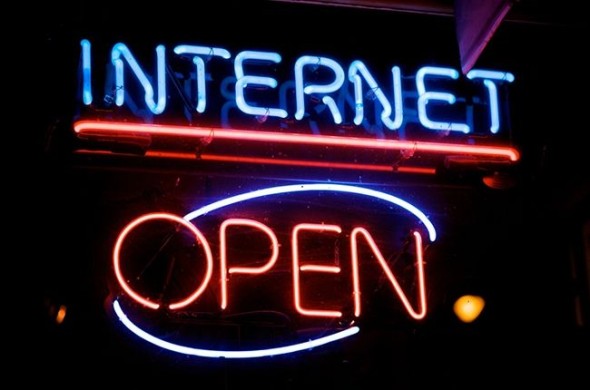The Good, The Bad, And The Ugly: Updates At The FCC
Posted on February 27, 2017 by Samuel Pastrick
Tags, Telecommunications

In the weeks leading up to President Trump’s inauguration, CUB raised concerns with his selections to lead the Environmental Protection Agency (EPA) and Interior and State Departments. Each of these cabinet picks signaled a striking departure from the previous Administration’s philosophy regarding energy, the environment, and the urgent need to address climate change. Yet a less publicized selection, but one that provoked similar shudders from CUB and other consumer groups, was the appointment of Ajit Pai to lead the Federal Communications Commission (FCC).
The selection of Mr. Pai to succeed the previous Chair, Tom Wheeler, was no surprise. As both a sitting FCC Commissioner and former Verizon Counsel, his promotion makes perfect sense. And while his appointment was seen as something of a red flag, most groups – CUB included – chose to take more of a wait-and-see approach given his breadth of Commission and industry experience.
Unfortunately, experience does not always signal a person’s ability to lead an important agency like the FCC. Now barely a month into his tenure, Mr. Pai has certainly made his mark, highlighting both the Chair’s power and the far-reaching impact of party leadership in the White House regarding federal telecommunications policy.
First, the good news:
On Mr Pai’s first day as FCC Chair, he cited bridging the digital divide as the cornerstone of his agenda, saying “…there is a digital divide in this country—between those who can use cutting-edge communications services and those who do not…[and] our core priorities going forward should be to close that divide [and] bring the benefits of the digital age to all Americans.”
Pai also took steps to pilot a change-in-rules governing transparency and public oversight of the FCC by releasing the full text of proposals before full-Commission votes. It is important to note, however, that detractors are concerned that this step will increase FCC decision timelines by giving special interest groups an unreasonable legal advantage.
Chair Pai also endorsed plans to require manufacturers to enable smartphones and other devices to transmit FM radio at no charge to the consumer. This could prove helpful in emergency scenarios or for frequent FM radio listeners.
Now on to the not so good news:
Under Chair Wheeler, and leadership from the Obama White House, the FCC took major steps to bolster consumer protections and improve access to technology for low-income people.
The 2015 Open Internet Order ambitiously set out to improve online privacy and consumer education, and enforce “network neutrality” rules by reclassifying broadband as a common carrier service under Title II of the Communications Act. A federal appeals court upheld the order last year, further entrenching the FCC’s broad authority to impose rules prohibiting Internet service providers from sharing sensitive personal data, blocking or throttling Internet traffic, or prioritizing content in exchange for payment.
Also last year, the FCC expanded the federal Lifeline program to include broadband customers. Lifeline is a decades-old program that helps low-income people pay for communication services. This most recent expansion allows income-eligible customers to apply a $9.25 monthly subsidy toward home or mobile Internet service.
Unfortunately, under Chair Pai, and with a mandate from the Trump White House, these two polices are all but likely to change – if not reverse altogether.
While Pai has, in the past, advocated for a “free and open” Internet, he continues to oppose Title II reclassification – the legal mechanism allowing the FCC to impose the Open Internet and key privacy rules and, more generally, regulate Internet service providers similar to public utilities.
Just last week, the FCC announced plans to halt Wheeler-era privacy rules requiring Internet service and mobile data providers to safeguard consumers’ sensitive personal information (i.e. Social Security, health and financial, web browsing history, geolocation, and anything related to children) in the same way phone companies must.
Additionally, last month the FCC revoked the eligibility of nine companies to provide Lifeline broadband subsidies. One company, Boomerang Wireless, currently operates in Oregon.
And finally, Pai’s FCC recently closed an investigation into whether AT&T and Verizon violated net neutrality rules by exempting certain customers from data cap fees – a practice more commonly referred to as “zero rating”. An FCC report released last January, before former-Chair Wheeler stepped down, found that the companies had in fact violated the rules.
What does this all mean for the FCC and consumer friendly policy? The short answer is that no one knows for sure. The partisan politics at the Commission and in the Executive Branch are such that programs like Lifeline and policies like net neutrality are anything but safe. However, this does not mean that groups like CUB or consumers who care about these issues lack skin in the game.
The Open Internet Order was developed and eventually passed in large part due to a groundswell of public support (the FCC received over 3.7 million initial public comments on the topic). Chair Pai’s decision to bar nine companies from delivering reduced cost Internet service to low-income people has also received overwhelmingly negative attention.
This is why our helping you stay informed on these matters is important. Stay tuned to our blog and sign up to receive email and Action Alert updates.
To keep up with CUB, like us on Facebook and follow us on Twitter!




09/05/22 | 0 Comments | The Good, The Bad, And The Ugly: Updates At The FCC